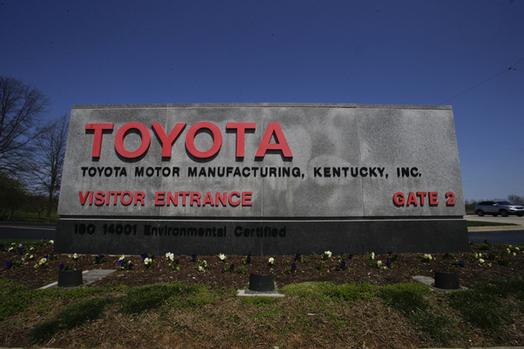Automobile manufacturer Toyota has been crowned as the most sustainable company in the world in the Carbon Clean 200 report.
Siemens and Johnson Controls completed the top three, compiled by research and media firm Corporate Knights and environmental NGO As You Sow.
Japan-headquartered Toyota has placed sustainability central to its corporate strategy and has established six targets to achieve by 2050, including reducing emissions from its manufacturing facilities to zero through the adoption of renewable energy sources.
Meanwhile a large number of clean energy manufacturers appeared in the top 50, including the likes of Vestas (7), Tesla Motors (17), First Solar (19), Kingspan (27) and battery manufacturer BYD (31).
Industrial manufacturers made up the bulk of the list, contributing 96 of the 200 firms included. IT firms were the second largest sector with 45, followed by both utilities and consumer discretionary firms with 17 each.
The group said that the inaugural edition of its now quarterly report proved that clean energy companies were outperforming their “dirty” counterparts by three to one.
“The Clean200 nearly tripled the performance of its fossil fuel reserve-heavy counterpart over the past ten years, showing that clean energy companies are providing concrete and measurable rewards to investors,” Toby Heaps, chief executive at Corporate Knights, said.
“What’s more, the outstanding performance of this list shows that the notion that investors must sacrifice returns when investing in clean energy is outdated. Many clean energy investments are profitable now, and we anticipate that over the long-term their appeal will only go up as technologies improve and more investors move away from underperforming fossil fuel companies,” he added.
The Carbon Clean 200 takes into account a company’s revenues derived from clean industry. A score is calculated by multiplying each company’s year-end revenues by its Bloomberg New Energy Finance (BNEF) new energy exposure rating.
Certain eligibility criteria must also be met. Only companies with a market capitalisation greater than US$1 billion qualify, and they must derive at least 10% of their total revenues from new energy sources.
All oil and gas companies are excluded unless they generate more than half of their power from renewables, while weapons manufacturers, companies with poor track records on deforestation and child labour and those who lobby against climate change are also struck off the list.






